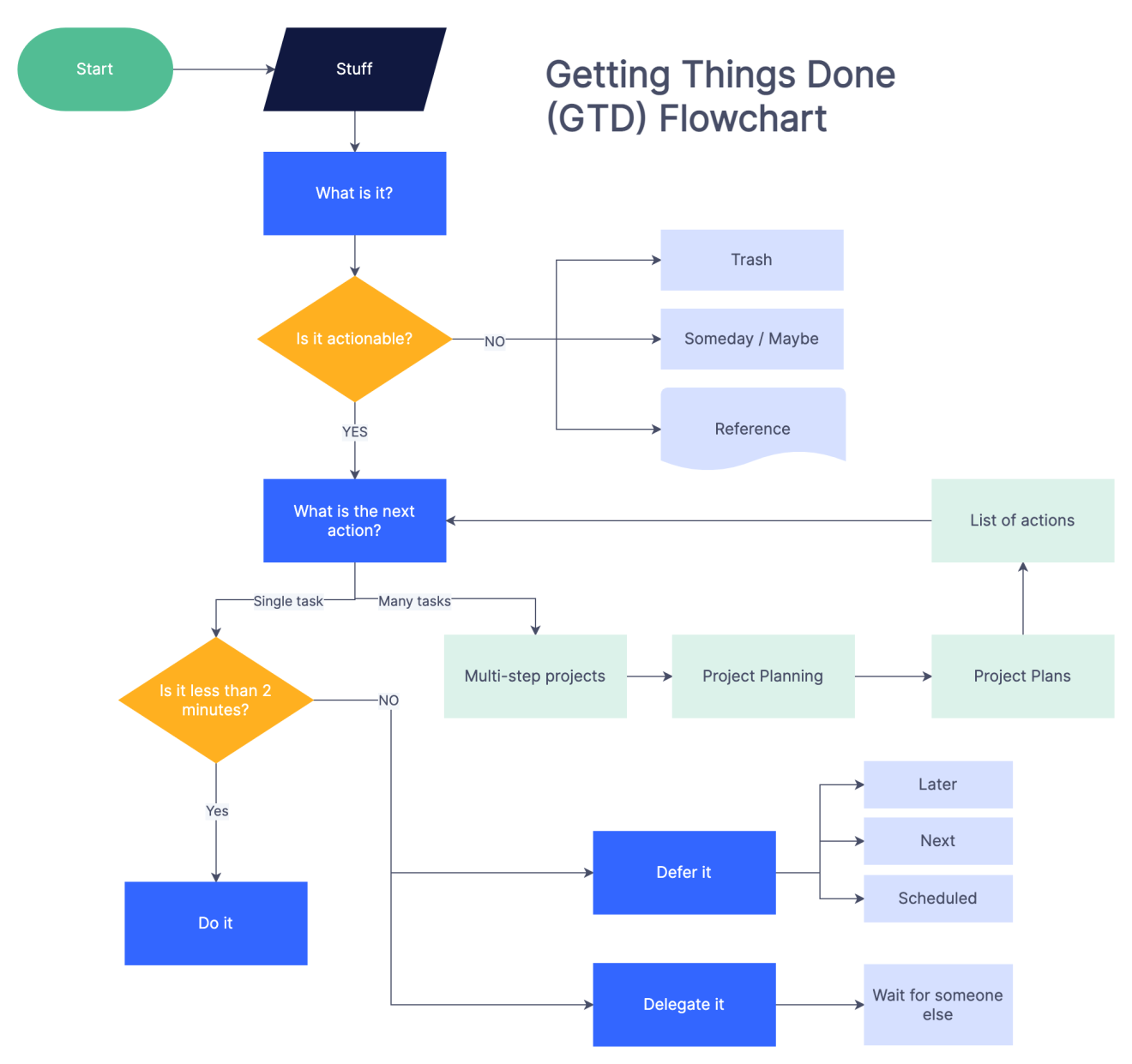
The Hidden Dangers of Procrastination and How to Overcome It: Unleashing the Power of GTD
Procrastination, the act of delaying or postponing tasks, is a widespread problem that can lead to serious consequences in our personal and professional lives. Understanding the risks of procrastination and learning effective strategies to combat it, such as the Getting Things Done (GTD) methodology, can significantly improve productivity and overall well-being. In this article, we'll delve into the dangers of procrastination and explore how implementing GTD can help you regain control over your life.
Risks of Procrastination:
a. Decreased productivity:
Habitually putting off tasks can lead to a backlog of work, making it difficult to complete projects on time and impacting overall productivity.
b. Increased stress and anxiety:
The constant feeling of having unfinished tasks looming over you can result in increased stress and anxiety levels, affecting both mental and physical health.
c. Damaged reputation and career:
Consistently missing deadlines or underperforming at work due to procrastination can tarnish your professional reputation, limit career advancement opportunities, and even lead to job loss.
d. Strained relationships:
Procrastination can strain personal and professional relationships, as others may perceive you as unreliable or untrustworthy.
e. Lost opportunities: Delaying decisions or actions can lead to missed opportunities in various aspects of life, from career growth to personal experiences.
Strategies to Overcome Procrastination:
a. Set clear goals:
Establish specific, measurable, achievable, relevant, and time-bound (SMART) goals to provide a clear path and motivation for completing tasks.
b. Break tasks into smaller steps:
Dividing large projects into smaller, manageable tasks can make them less daunting and easier to tackle.
c. Prioritize tasks:
Determine which tasks are most important and tackle them first, ensuring that you address high-priority items before they become urgent.
d. Use the GTD methodology:
The Getting Things Done (GTD) system, developed by productivity expert David Allen, offers a comprehensive approach to managing tasks and improving productivity. GTD involves five key steps: capture, clarify, organize, reflect, and engage. By following these steps, you can efficiently process and manage tasks, minimize procrastination, and optimize productivity.
It is worth noting that Zen Flowchart, a tool that allows you to make a flowchart, has developed an interesting example of a GTD flowchart that you can view and use as a reference. This visual representation can help you better understand the GTD methodology and more effectively implement it in your daily life to overcome procrastination and enhance productivity.

e. Establish routines:
Develop daily routines to help structure your day and ensure that you allocate time for essential tasks.
f. Eliminate distractions:
Identify and minimize distractions in your environment to maintain focus and avoid procrastination.
g. Reward yourself:
Celebrate your accomplishments, both big and small, by rewarding yourself for completing tasks. This can serve as motivation and help to reinforce positive habits.
Procrastination can pose significant risks to your personal and professional life, but understanding these dangers and employing strategies such as the GTD methodology can help you overcome this persistent challenge. By taking control of your tasks and time, you can enhance productivity, reduce stress, and unlock your full potential.



















